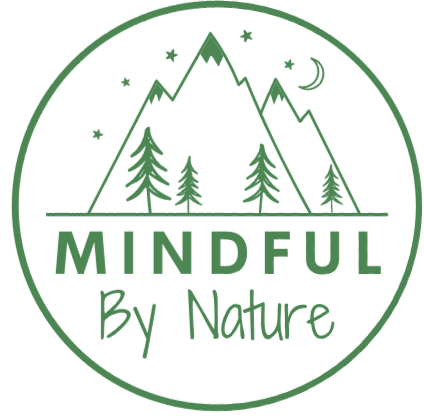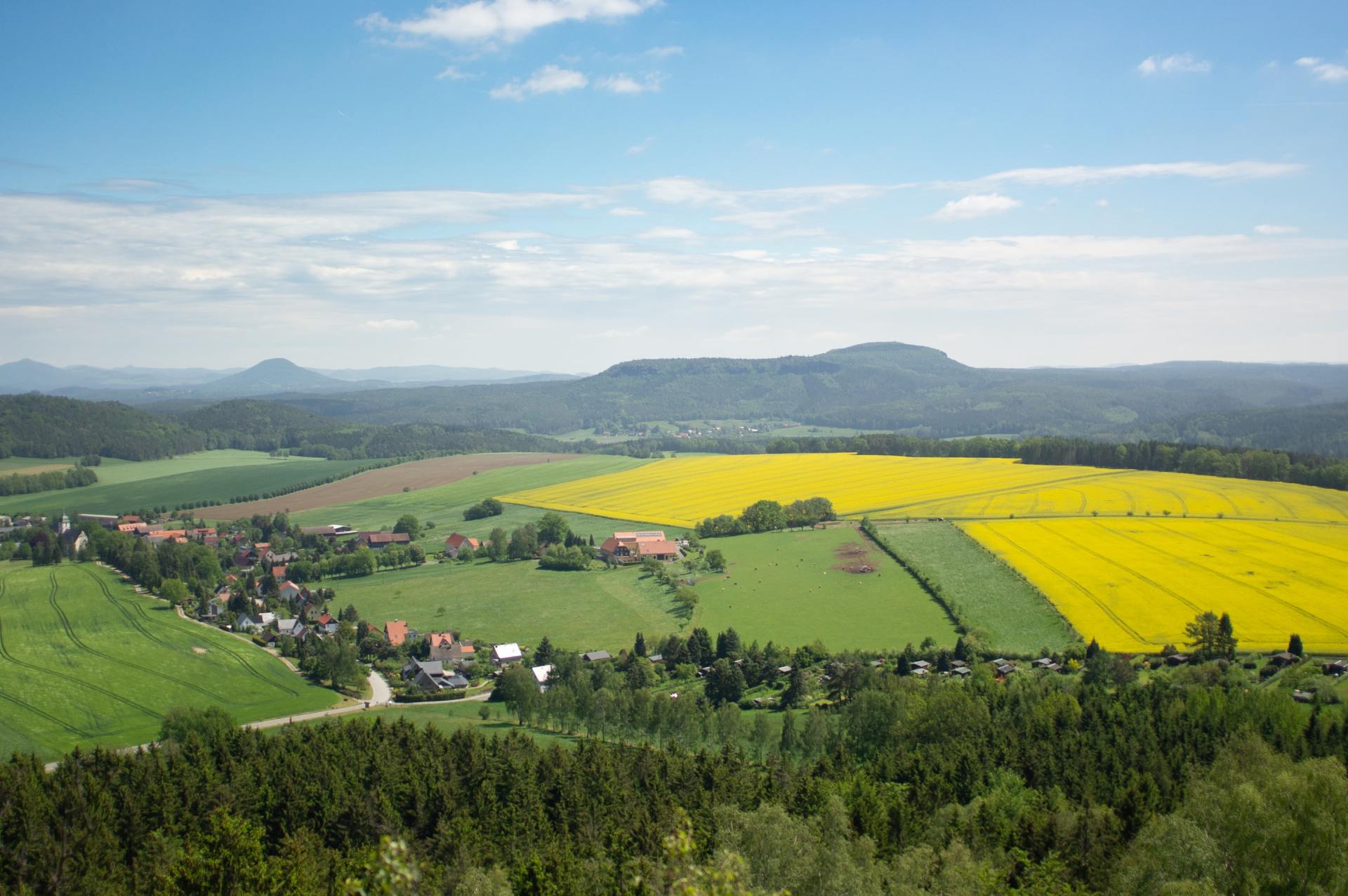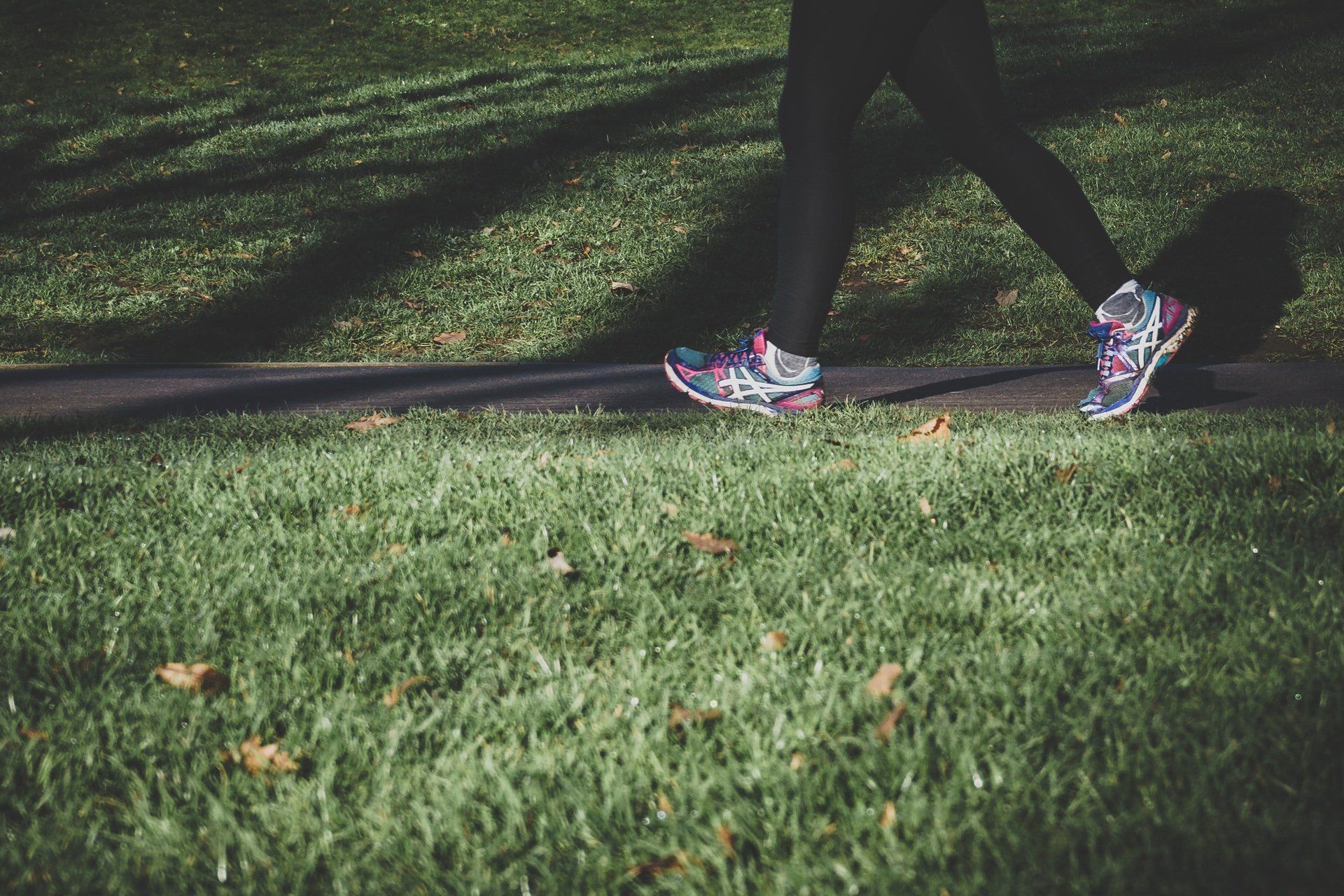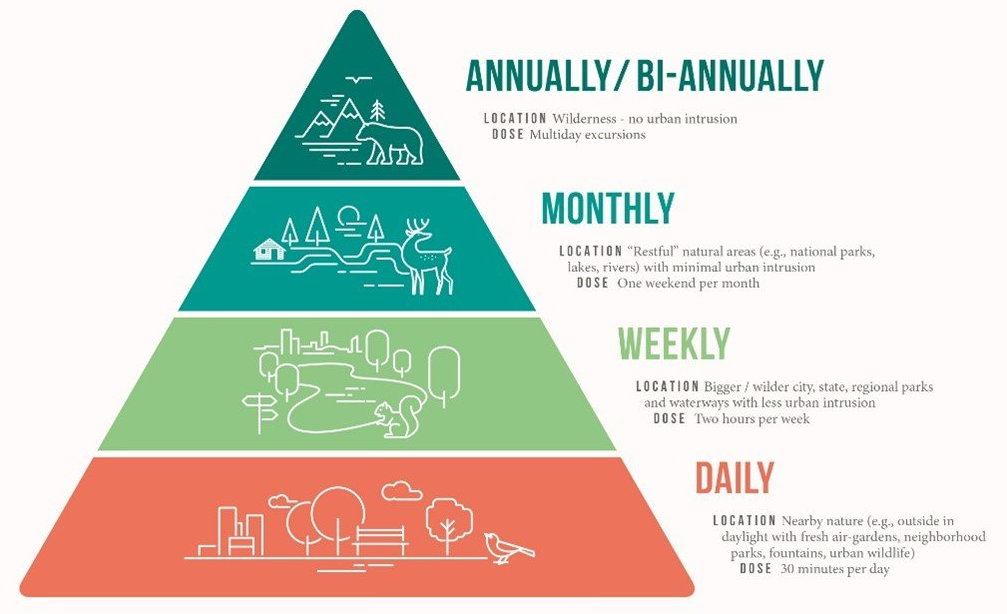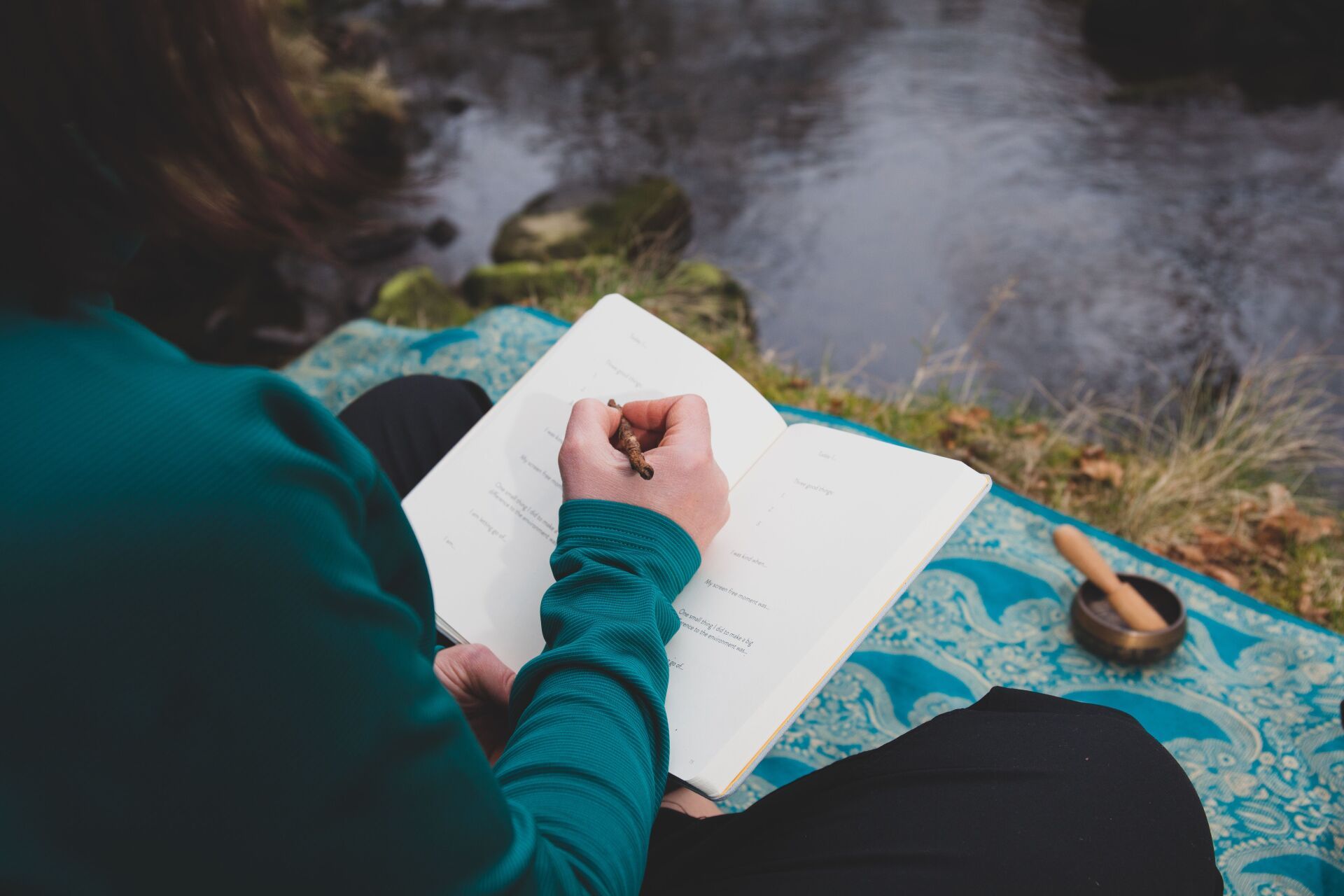What’s the big deal about nature? In a word, EVERYTHING!
Connecting with nature is as fundamental to human health, well-being, spirit and survival as exercise and a healthy diet.
Growing up in the rolling hills of County Tyrone on a small farm, I didn’t know how fortunate I was until I left home to go to the big city. It never occurred to me how much there was to gain from stepping out of my front door to be confronted by endless miles of countryside until I was gone.
And it’s not just me, all of my siblings who moved away have the same conversations with those we left behind - “Do you know how lucky you are to live in these green spaces?” Clearly, they do, which is why they never left in the first place!
No matter what window of the house you look out of you see fields. My heart soars with delight, as well as slight pangs of jealousy, when I am there.
The truth is, no matter where we’ve come from, we all feel better when we are in nature. That’s because we instinctively know it is good for us.
It’s even ingrained in our language. How often do we head out to ‘blow the cobwebs away’ or describe someone as a ‘breath of fresh air’? What about ‘making hay while the sun shines’ or ‘weathering the storm’?
These are idioms most of us will be familiar with because they are so accurate. They conjure up a feeling to perfectly describe a situation, using the thing we are all familiar with – nature.
It’s science
Though we instinctively know nature is good for us and we are deeply connected, scientists have set to work on proving why and how.
Through my own experiences I know that being out in nature helped benefit my mental health. I have dabbled in anti-depressants, but only lasted five days. I couldn’t handle gritting my teeth constantly and the queasiness, while also still feeling sad and stressed.
As an escape from the stress, I got my shoes on and went out walking every day for a week, up and down hills, through fields and woods. I felt joyful, invigorated, and upbeat.
Of course, the challenges causing me sadness and stress still existed, and I was by no means skipping about like in a scene from The Sound of Music, but I was calmer and less reactive.
You may say it’s the physical exercise that really benefited me as opposed to the surroundings, and of course it is hugely beneficial, but I also believe it wouldn’t have had the same outcome if I had been stomping around the inner city.
Part of this is to do with the repeating patterns we see in nature, known as fractals, which are so much easier for us to understand than the harsh, jagged shapes of the buildings in suburbs, towns and cities, not to mention the noise pollution from the cars, sirens, construction work and whatever else. Apparently the grey, urban scenes can make us unhappier and more aggressive, while looking at natural fractal patterns can reduce stress by up to 60%. This includes clouds, flowers, trees, snowflakes, coast lines etc.
Scientist have also proven that simply spending time in nature, two hours per week to be precise, is good for our physical health whether we are active in it or sitting on a park bench enjoying the view – so you don’t have to sign up for a mountain trek or boot camp to benefit!
The sixth sense
Getting the most from nature isn’t just about what we see, but also what we touch, hear and feel.
We are constantly surrounded by noise, be it the washing machine, the fridge, central heating, TV, phones ringing or pinging. Overtime it becomes background noise, but that doesn’t mean it isn’t raising our stress levels unbeknownst to us.
Now we know the countryside isn’t always a quiet place, think sheep baaing, birds singing and trees rustling in the rain, but several studies have shown that people experiencing stress have experienced a reduction in cortisol levels and increased heart rate variability when exposed to sounds of nature, particularly bird song, water, and wind.
And then of course there’s the smells, the textures, the tastes associated with nature. All of which are as beneficial as our sights and sounds. Nature allows us to experience awe and wonder, feeding into our intuitive knowledge that nature is good for us. A little bit of what is perhaps our 6th sense.
How much is enough?
The Government suggests we need to exercise for 30 minutes a day, five days a week, and eat five pieces of fruit or veg per day to maintain a healthy lifestyle.
If nature is as important as exercise and diet, how much nature is enough?
Richard Louv penned the excellent ‘Last Child In The Woods’ where he introduced the concept of ‘Nature Deficit Disorder’, the belief that a lack of exposure to the outdoors is causing a wide range of behavioural problems among children.
He has also, along with others, come up with the concept of a nature pyramid. A bit like the eat well plate, but for nature. It shows a great insight to what we can strive for in terms of promoting and maintaining our holistic wellness.
So, nature, what’s the big deal? Like I said, EVERYTHING!
It’s no surprise that nature was the theme for this year’s Mental Health Awareness Week. Nature is never too far away. The smallest of green spaces will attract some form of wildlife and have a presence of bird song. Put your shoes on, leave your devices at home and go and explore. You’ll be amazed what you find and how you may feel during and afterwards.
You deserve it.
